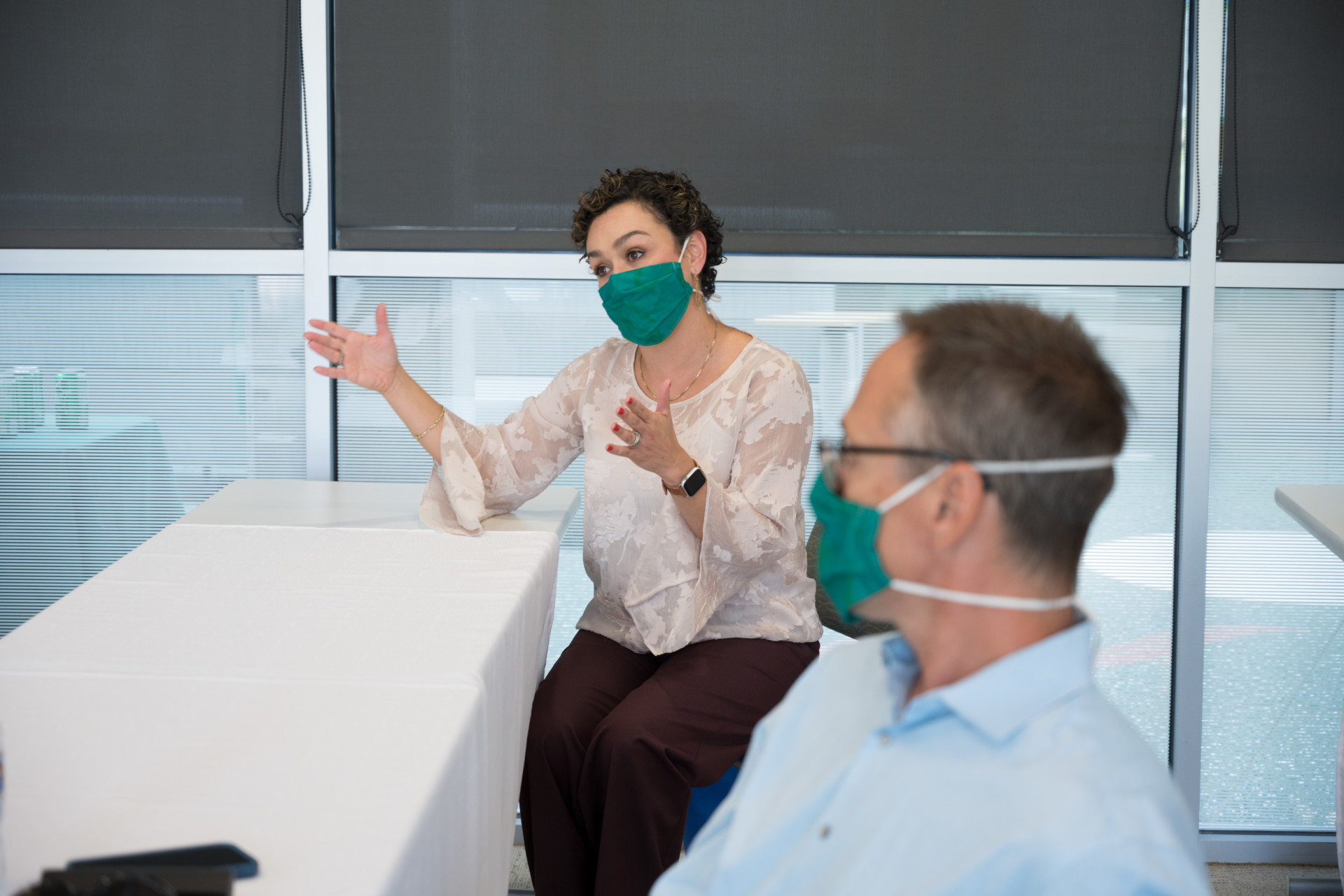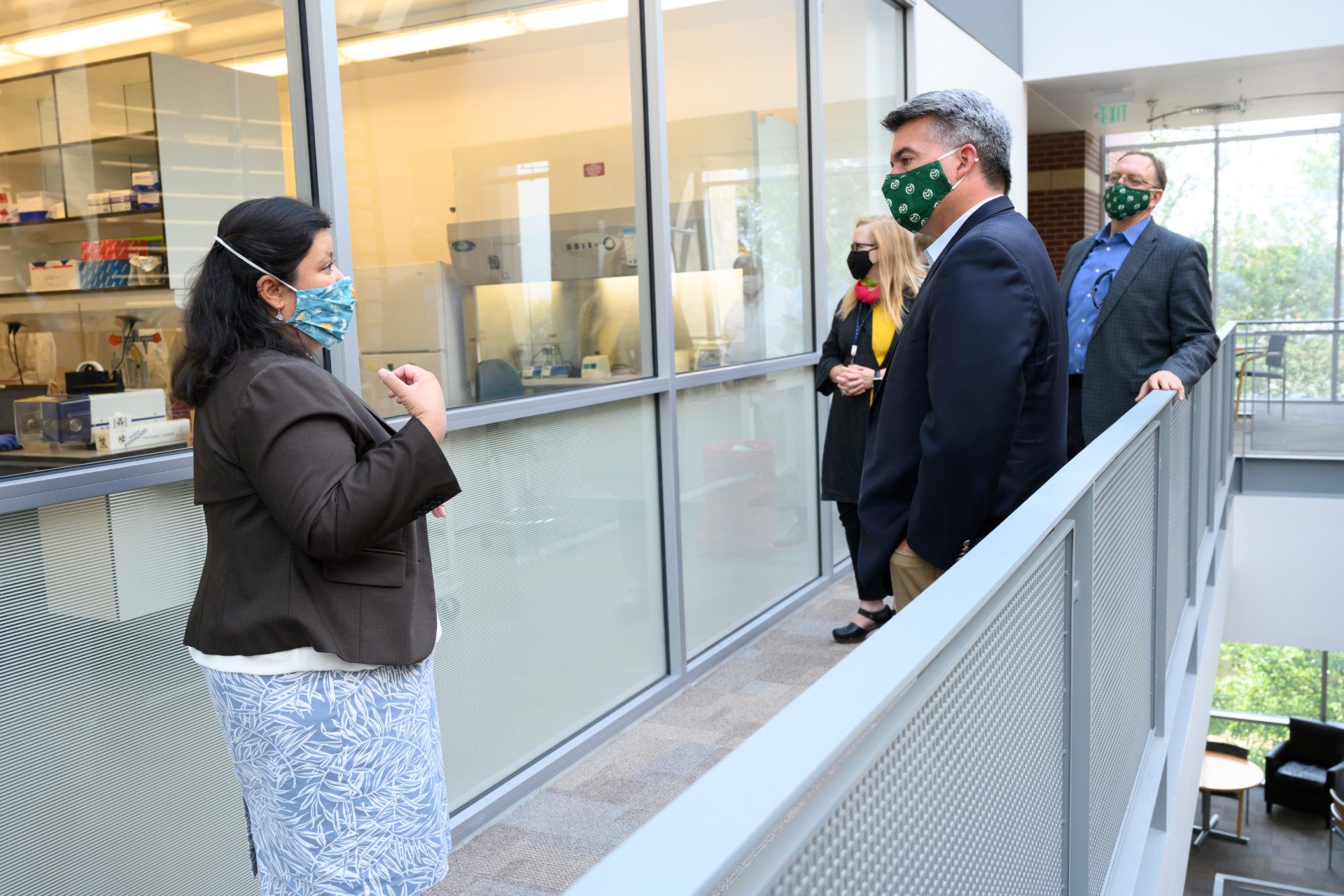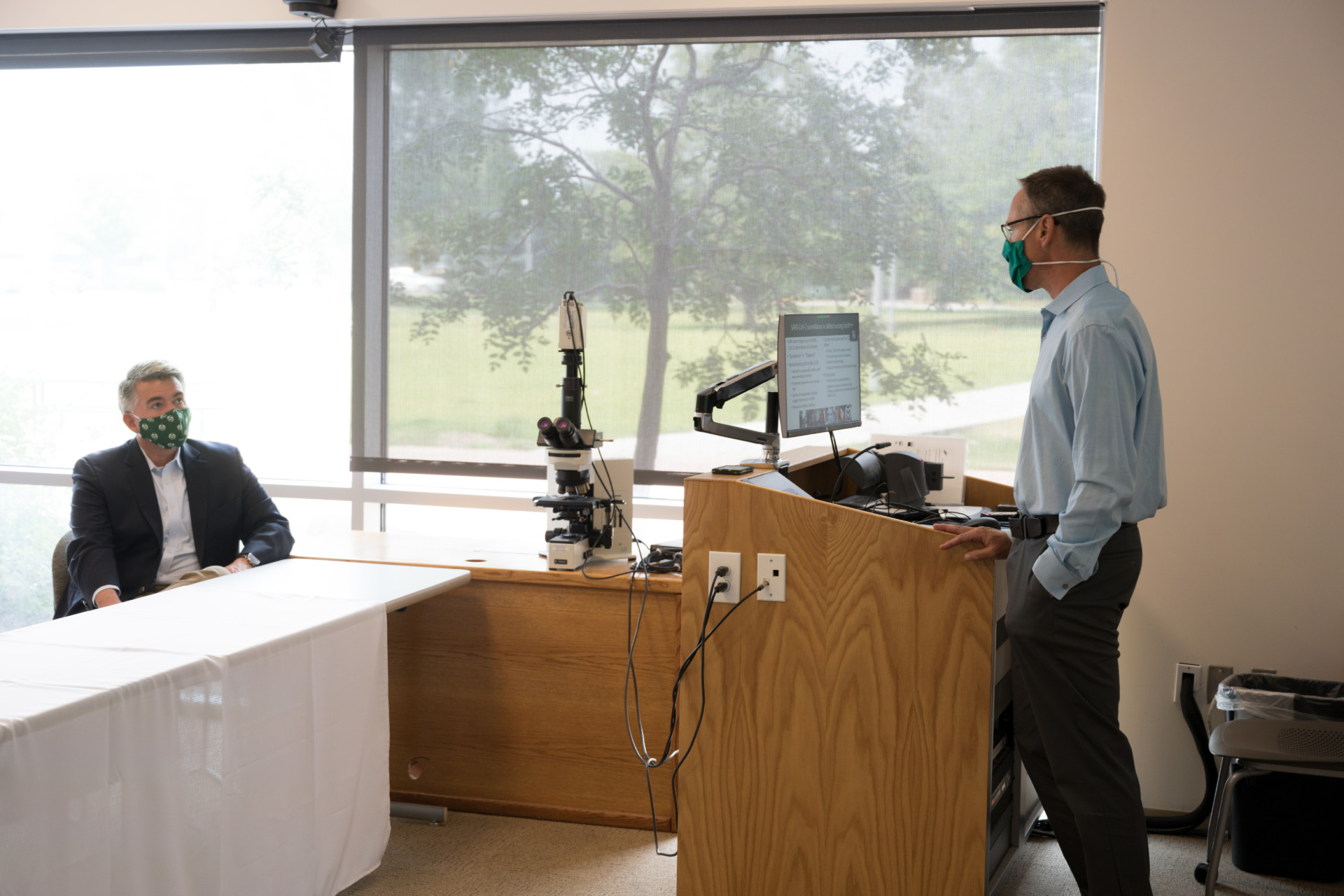


During his visit to the CSU Veterinary Diagnostic Laboratory, Sen Cory Gardner heard from Dr. Marcela Henao-Tamayo about the SolaVAX vaccine initiative (left), as well as Dr. Kristy Pabalonia (center) and Greg Ebel (right) about surveillance testing of workers at senior care facilities. Photos by William A. Cotton, CSU Photography
Colorado State University has continued to activate its nationally recognized researchers, facilities, and capabilities to help slow the spread of coronavirus that causes COVID-19, and on Aug. 25, U.S. Sen. Cory Gardner (R-Colorado) toured the Veterinary Diagnostic Laboratory to learn about the University’s work in testing, senior care facility surveillance and vaccine development.
Typically, the laboratory conducts tests and identifies a variety of animal diseases, but during the pandemic, it has also worked to help the local community process coronavirus tests on humans.
Testing approach
During his visit, Gardner learned about the Veterinary Diagnostic Lab’s Biosafety Level 3 facility for testing highly infectious bacteria and viruses. This lab, usually used for animal testing, is now analyzing 400-600 human COVID-19 tests daily, doubling and sometimes tripling, the lab’s normal caseload.
To date, the lab has tested more than 21,000 COVID-19 samples, sending results electronically to the Colorado Department of Public Health and Environment to assist with timely decision-making from state health officials.
“Sen. Gardner has been a great supporter of our laboratory and has helped advocate for us, including supporting federal funding for the National Animal Health Laboratory Network,” said Dr. Kristy Pabilonia, director of clinical diagnostics for the CSU Veterinary Health System. “We appreciate his interest in our work and we are proud to serve our state in this time of great need.”
Gardner also learned about the work Pabilonia; Greg Ebel, a professor in the Department of Microbiology, Immunology, and Pathology; and Dr. Nicole Ehrhart, director of the Columbine Health Systems Center for Healthy Aging, are doing to test workers in senior care facilities. Together, the team is working to improve Colorado’s public health by identifying the coronavirus in senior care providers to reduce the spread of the disease within those facilities.
“We now know that the problem we face in infectious disease outbreaks is interconnected between climate, animal, and humans,” said Alan Rudolph, vice president for research at CSU, “and we need to continue to work together to solve these problems with this intertwined approach.”
Vaccine development
Ray Goodrich, executive director of the Infectious Disease Research Center at CSU, described the SolaVAX vaccines manufacturing process to Gardner. The SolaVAX platform has previously been shown to inactivate a different infection in the coronavirus family, MERS-CoV. This vaccine initiative has also recently secured an agreement with the Biomedical Advanced Research and Development Authority (BARDA) to further develop a novel virus inactivation process.
“Colorado State’s faculty have moved swiftly to provide the state, the nation, and the world a range of potential solutions and medical countermeasures, such as SolaVAX, to combat the coronavirus,” said Rudolph. “We want to thank Sen. Gardner and his staff who have helped us acquire key capabilities we will be using for COVID surveillance on campus and across the state.”
Congressional support
Gardner expressed gratitude to the researchers at CSU who have pivoted away from their usual research areas to help find solutions to end the coronavirus pandemic.
“Research and science is key. The testing is key,” said Gardner. “As we invest in the science, as we in invest in the research, the breakthroughs will come.”